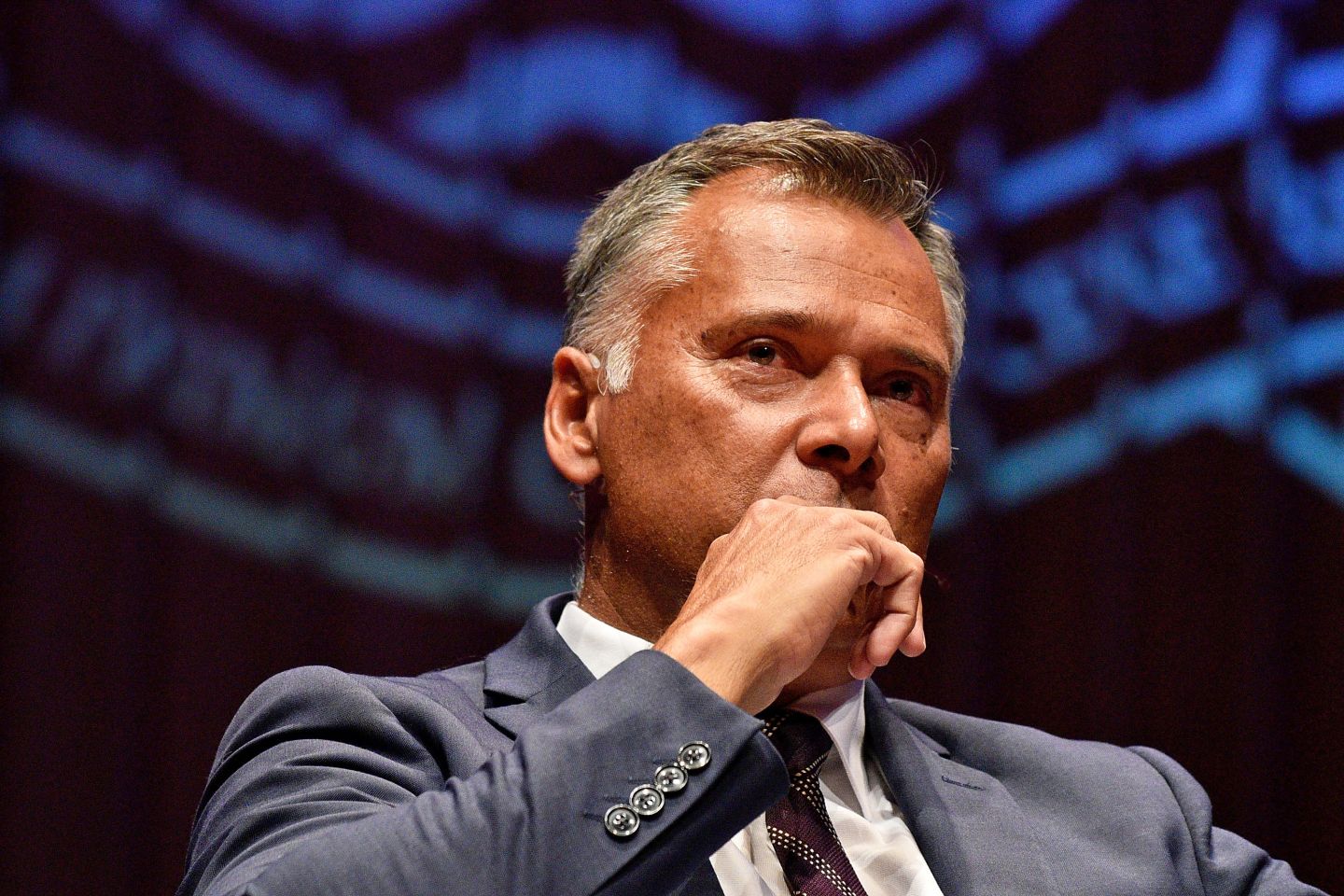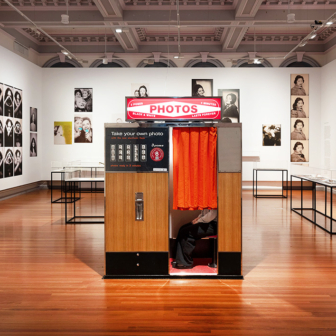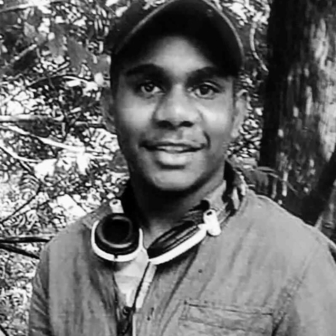The rugby player Israel Folau had his contract terminated because he expressed his religious belief that gays who fail to repent are doomed to hell. In defence of his dismissal, Australian Rugby chief executive Raelene Castle said that people need to feel safe and welcomed regardless of their gender, race, background or sexuality. Folau’s continued appearance on the field, she implied, would make LGBTQI people feel unwelcome.
Why should this be so? The actual content of Folau’s views don’t explain it. I imagine that few of the people Folau is referring to will be disturbed by the message itself. Many of them do not believe in hell or they subscribe to a religious doctrine that does not hold that their sexual preferences are sinful. Perhaps young people, insecure about their sexuality, may be disturbed to find that a sporting hero thinks that people like them are bound for hell, but they will be able to find other role models who do not have this belief.
Folau also declared that atheists are bound for hell, but few express a worry about atheists feeling unwelcome at a rugby match because of his presence. Atheists are expected to tolerate the presence of people who oppose their view. Why is it different for people who are lesbian, gay, bisexual, transgender, intersexual or queer?
The only explanation for why the continued presence of Folau might make LGBTQI people feel unwelcome or unsafe is because it is assumed that being gay is not merely a sexual preference but an identity. If being gay defines who a person is then an attack on their sexuality is an attack on the person. It is a way of saying that such a person should not exist. And if someone attacks a person’s very identity then the attacker is defined as an enemy of such people and this identity is inseparable from whatever else he does; it even pollutes the groups or people he associates with. This is why it is assumed that allowing Folau to remain on the rugby field would make an LGBTQI person feel uncomfortable and unsafe. Atheism, on the other hand, is assumed to be merely a belief, however fervently held.
The belief that a person’s identity gives her, or her defenders, a justification for censoring and excluding those who object to her way of life has become prevalent even in institutions that are supposed to favour free speech. John Finnis, a distinguished philosopher of law, faced a campaign to have him sacked from Oxford University because of opinions he expressed on homosexuality in an academic article a long time ago. Like Folau, Finnis held (and may still hold) the view that homosexual behaviour is a sin and ought to be discouraged by society. He recommended a traditional Christian attitude: we should hate the sin but love the sinner.
The problem for Finnis is that this distinction between people and their acts is not made by those who attack him. Finnis’s article is now read as a dehumanising attack on those who have an LGBTQI identity. Having been outed by his critics he can no longer be regarded as a person they can be comfortable with as their teacher — whatever the content of his courses. No distinction is made by his critics between the sin and the sinner.
Many of those who disagree with Folau’s exclusion complain that his freedom of speech has been violated. But limitations on freedom of speech can be justified for the sake of the dignity and safety of others. If the AFL is justified in disciplining players for making racist comments, then what is wrong with a ban on football players or academics who publicly oppose expressions of LGBTQI identities?
The answer to this question hinges on the role that identity is supposed to play in social and political relationships. Can we justify a morality and politics that uses identity as a reason for excluding or limiting the expression of others. Is it a mistake for society to validate or encourage appeals to identity?
This latter question is addressed by Stan Grant in On Identity, a book in Melbourne University Press’s “little books on big ideas” series. Grant, an author, journalist and former foreign correspondent, has a personal reason for disliking the division of society into identities. Although he is a member of the Wiradjuri/Kamilaroi community in central New South Wales, he feels that to identify himself as Aboriginal for official purposes is to deny the existence of his white grandmother, who had the courage to choose an Aboriginal man for her partner. It is to acquiesce in a history of defining people by their race. It denies the reality of his upbringing in a neighbourhood where white and black people lived side by side.
Grant thinks that identities not only enforce a history of segregation and deny the complexity of human heritage. They are also bad for individuals. They limit what people can be or feel. They deny the possibility of love that is central to Christianity. They stifle creativity. James Baldwin, says Grant, was able to realise his potential as a writer when he moved from America to Paris to escape the crippling identity of being a black man. But when he returned to America to contribute to the struggle for black liberation, he became a mere propogandist at the expense of his creativity. Identity, Grant says, does not liberate, it binds.
Grant’s criticism of identities has much in common with John Stuart Mill’s opposition to social conformity in On Liberty. Mill believes that the worst restriction on individual freedom is not state control but the stifling effect of social expectations. Individuals are forced by public opinion to become what others think they should be. They are denied the ability to discover and express their own individuality. For Grant it is not simply social expectations that hinder the development of individuals but their acquiescence in an identity. And the problem is not merely that individuality is squashed. Identities also nurture tyrants. “Identity, even with the best of intentions,” he writes, “falls too easily into the hands of petty tyrants — those identity police who monitor our words and actions, trolling social media to keep people in their lanes, telling us who qualifies to write or read — or monstrous despots who crush love under their boots.”
Mill wants everyone to realise him- or herself as an individual. But people come into the world with identities, and self-realisation cannot amount to a denial of the attachments that these identities bring with them. Grant prefers the vision put forward by Édouard Glissant, a Martinique poet and philosopher, of society as a creole garden where people have many identities and are not completely defined by any of them. “Yes, I am a Wiradjuri/Kamilaroi person, I am Irish, I am Australian, I am Indigenous and, as I said before, I have been all of those things and I am none of them.”
In a creole society people have identities that they value. But they are not imprisoned by any one of them and they transcend all of them. An insult in this society may wound but it can never be a threat to personhood. Those who condemn or insult are never defined by the position they express. In this society a person can be a conservative Christian, freely express his views, and yet also be acknowledged by those he regards as sinners as a good rugby player, a good teacher, a loving father and a valued member of his community. In this society people can acknowledge that there are good, indeed lovable, people on both sides of a conflict.
The problem is that we don’t live in this kind of society. As Grant admits, the identities that imprison people are often thrust on them. They are not only inescapable; they are also disvalued. They bring a stigma with them. People who have a disvalued identity can’t get out of their prison simply by refusing to accept the way in which they are defined. And those who act as gatekeepers of this prison are not merely voicing their views when they taunt or disparage. They are expressing their hate or distaste for all people who have the identity they despise or fear. They are signalling their allegiance to others who share their commitment to maintaining the subordination or exclusion of those they hate.
If they are educated, talented and lucky, individuals in a subordinated group may find an escape into other identities. They can, perhaps, go to a place like Paris where people are not so prone to have prejudices against people of their kind. But the fewer their opportunities, the less power people have over conditions that affect their lives, the more inconceivable is the creole existence that Grant regards as ideal.
Grant presents these people with a paradox. A struggle for freedom from the prison of a stigmatised identity requires a collective struggle — a solidarity with those who share the same oppression. The aim is to reject the low status that their identity imposes on them, but they can’t escape being so identified. They can’t change their skin colour, their heritage or their sexual preference. Their only option is to remake their identity into a source of pride and power. Identity imprisons people but it also has the potential to free them from oppression. Grant allows that this is so. What he emphasises is the price that has to be paid. “The identity of empowerment is split from the same atom as the identity of hate.” The identity of empowerment, he says, creates its own prison for individual expression, its own hate and its own tyrants. If this is the price of liberation, he suggests, then it is too high.
Many people would disagree. Baldwin probably knew that his creativity would suffer when he returned to join the black liberation movement. But joining the struggle was something he felt he had to do. Those who fight against the oppression of their group are often moved by love. Grant’s essay is frustrating because he provides no alternative for those who agree with what he says about the dangers of identity but also want to oppose the oppression that blights their lives.
Is there a way to escape the paradox of identity that Grant so movingly presents? One is to make a struggle for liberation into an inclusive movement open to anyone who shares the same ideals. Martin Luther King, who was well aware that such a struggle could breed hate, resentment and violence, represented the movement for black equality as a struggle for white as well as black Americans — for anyone who shared the dream that one day “little black boys and black girls will be able to join hands with little white boys and white girls as sisters and brothers.”
The other way is to keep a firm grip on what is supposed to be the objective of the struggle: the creation of a society in which individuals are respected whatever identities they have and are not imprisoned in any of them. Those involved in a movement of liberation have to ensure that the world of “us” and “them” created by their struggle does not turn into their final destination. This objective is not served when people assume as a matter of course that those who criticise their identity have thereby identified themselves as a threat to their kind. Avoiding the harms that Grant describes requires a difficult balancing act for all members of a liberal society. They must decide when it is legitimate to limit what people can do and say for the sake of protecting members of an oppressed group from threats to their dignity and safety, and when prohibitions violate the right of individuals to express their beliefs.
Not all identities should receive the same treatment. There are good reasons why the AFL should crack down on racist taunts by players and fans. Racial vilification and the harm it causes is a continuing problem in our society. But there is no good reason why Folau should be banished from the football field for stating his religious beliefs. Members of the LGBTQI community continue to face discrimination but nevertheless their entitlement to their sexuality is accepted by most Australians — as the marriage-equality poll revealed. They have no reason to feel insecure or unwelcome because of the views of a member of the conservative Christian minority. They do not need the protection of oversensitive officials. They can join the atheists in disagreeing with Folau’s opinion while appreciating his skill as a rugby player. •




